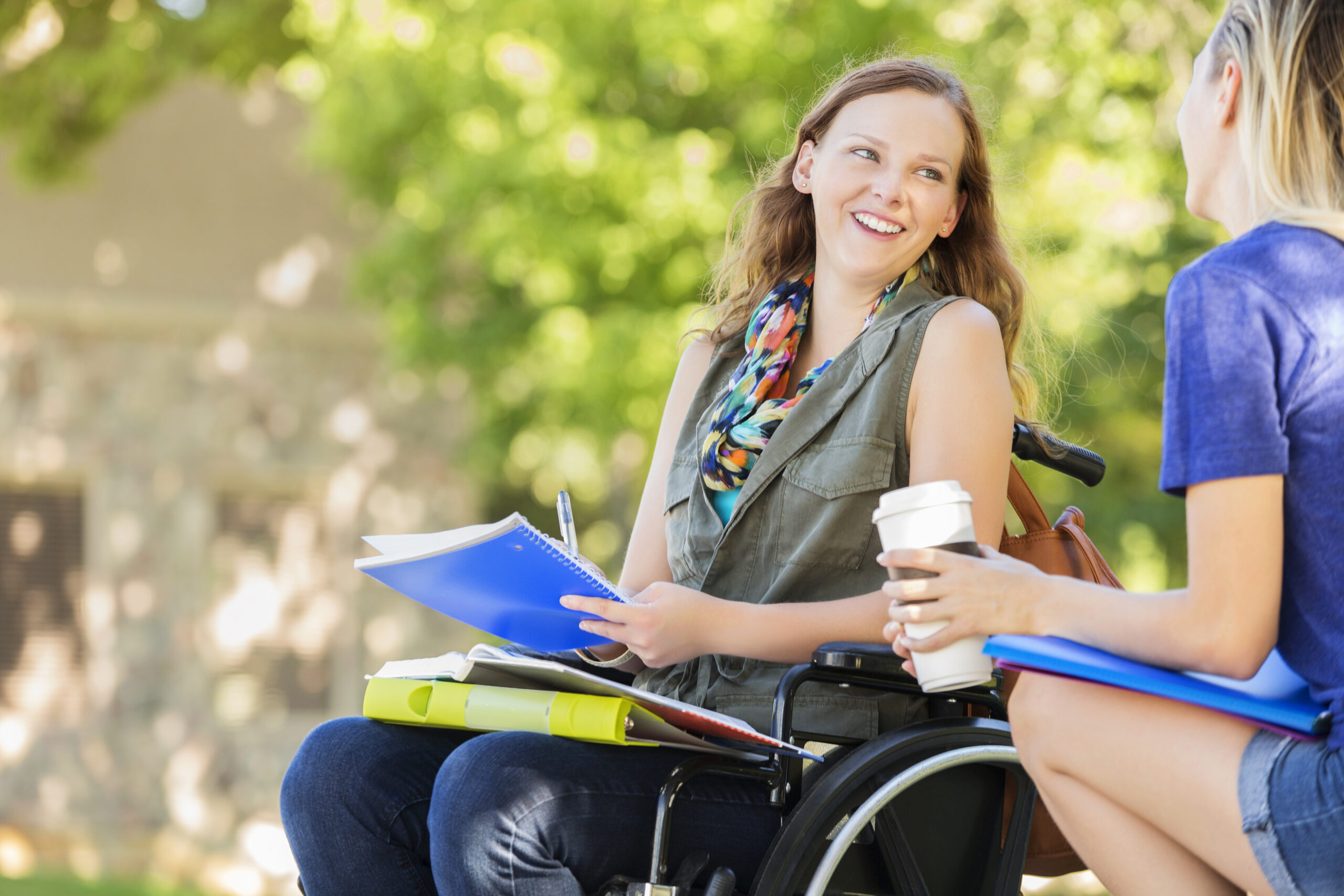What Makes Women with Disabilities Powerful Leaders

According to the Centers for Disease Control, one in four American adults has a disability. However, most people can only name a few elected officials with disabilities and even fewer disabled women serving in elected office. According to a study by Rutgers University professors Lisa Schur and Douglas Kruse, only 10% of elected officials have a disability.
As we strive for gender parity in politics, we must ensure that women with disabilities are empowered to run for and serve in elected office. Everybody should have a seat at the table when it comes to shaping policies that impact our communities. But beyond that, women with disabilities are powerful leaders. Here are some reasons why:
Women with disabilities make history. Women with disabilities are already running for and serving in elected office, and many are historic firsts for their communities. In 2021, Jessica Benham was elected to the Pennsylvania State House of Representatives. She is one of the first autistic people in state government and the first openly LGBTQIA+ woman to be elected to the Pennsylvania legislature. In 2018, Amanda Folendorf became the first Deaf mayor in the United States, as well as the youngest mayor to serve the community of Angels Camp, California.
The voices of women with disabilities are important. Policymaking must meet the needs of everyone. When underrepresented groups are not included in policymaking, decision-makers may not include those groups, or they may make decisions that harm them. Women with disabilities are strong advocates who understand the needs of their communities and other people with disabilities. Senator Tammy Duckworth has been a passionate advocate for people with disabilities in the Senate. She has proposed and passed legislation to address issues impacting people with disabilities. For example, she passed legislation to require airlines to report the number of wheelchairs that they break in service. The first report, as a result of this legislation, found that airlines break an average of 25 wheelchairs a day. Senator Duckworth also led in opposing legislation that was viewed as weakening the Americans with Disabilities Act, one of the most important pieces of civil rights legislation for people with disabilities.
Every policy issue is a “disability issue.” When people think of disability policy issues, they often think about things like the Americans with Disabilities Act, health care access, and Social Security. However, every policy issue impacts people with disabilities, just as it impacts people without disabilities. Employment, education, voting rights, transportation, housing, mass incarceration and policing, and any other policy issue you can name impacts people with disabilities, often in unique ways. Elected officials with disabilities have the lived experience necessary to effect change on these issues.
Women with disabilities understand their communities and advocate for change. Women with disabilities understand the barriers that exist in their communities. This is especially true when they live at the intersection of multiple marginalized identities—not just as women and people with disabilities, but as racially marginalized people, low-income people, religious minorities, and other marginalized identities. Lateefah Simon, Director of Bay Area Rapid Transit (BART), has spoken about the importance of her lived experience to her decision-making: “With all these decisions BART is making, the board needs a legally blind, Black, single mother.” Lateefah must use public transit because she can’t drive due to her disability. She approaches BART through a social justice lens, looking at low-income fare discounts and reexamining the transportation system’s relationship with policing.
Women with disabilities have leadership qualities. Unfortunately, people with disabilities have to navigate a society and systems that aren’t built to accommodate them. However, this means that most of us have a wealth of experience in advocating for ourselves and for change in our communities. Because of this, women with disabilities have experience with creative problem solving, are adaptable to changing situations, and know how to speak up for themselves and their communities.
We need more women with disabilities in positions of power. Explore your leadership potential alongside like-minded women from all across the country by checking out our Resource Center! Additionally, don’t miss out on the National Council on Independent Living’s Elevate program. Elevate is a nonpartisan campaign training for people with disabilities. Head to www.ncil.org/elevate for more information.
Written by Sarah Blahovec, a disability rights advocate and activist. She currently works as the Voting Rights and Civic Engagement Organizer for the National Council on Independent Living, where she advocates for greater accessibility in elections; educates the disability community on voting rights and works to energize a disability voting bloc; and addresses barriers to running for office for people with disabilities. Sarah is the creator of Elevate: Campaign Training or People with Disabilities, the first national run for office training program for people with disabilities. As part of her work, she also created “Including People with Disabilities in Your Political Campaign: A Guide for Campaign Staff,” which has been used widely by campaigns and organizations to make their spaces more accessible to people with disabilities.
